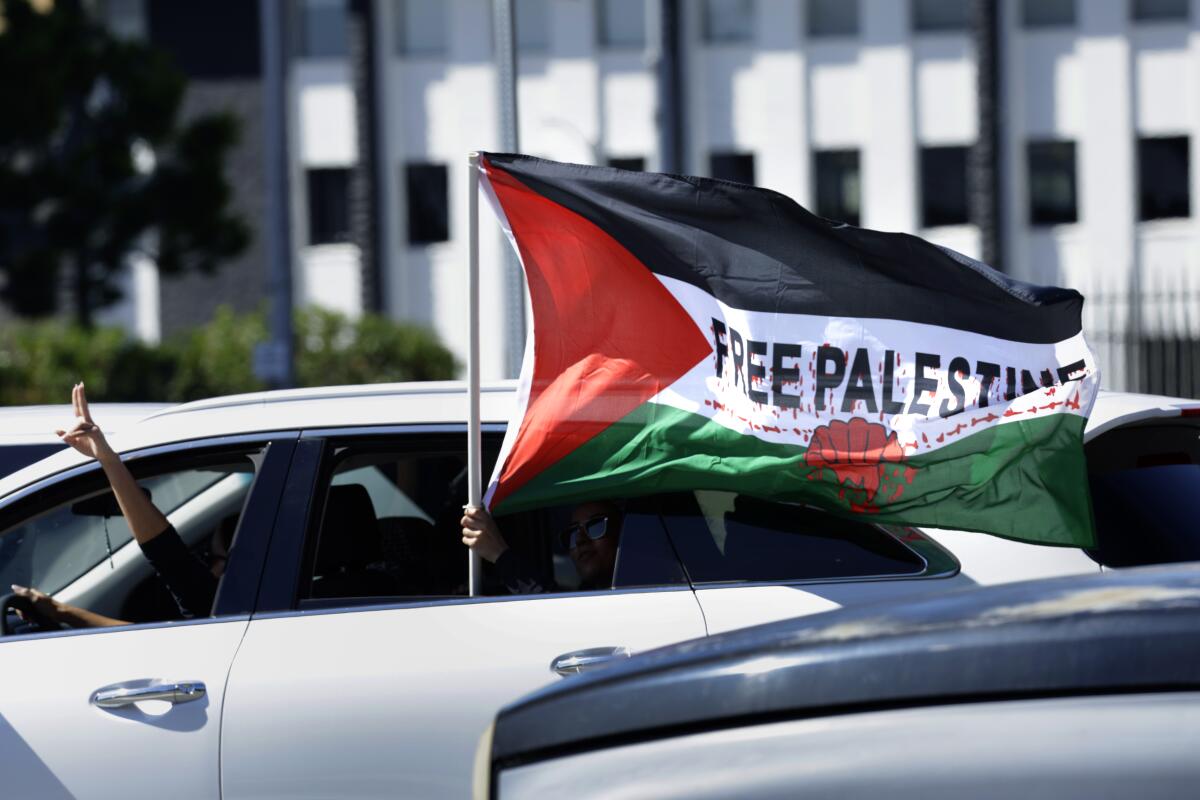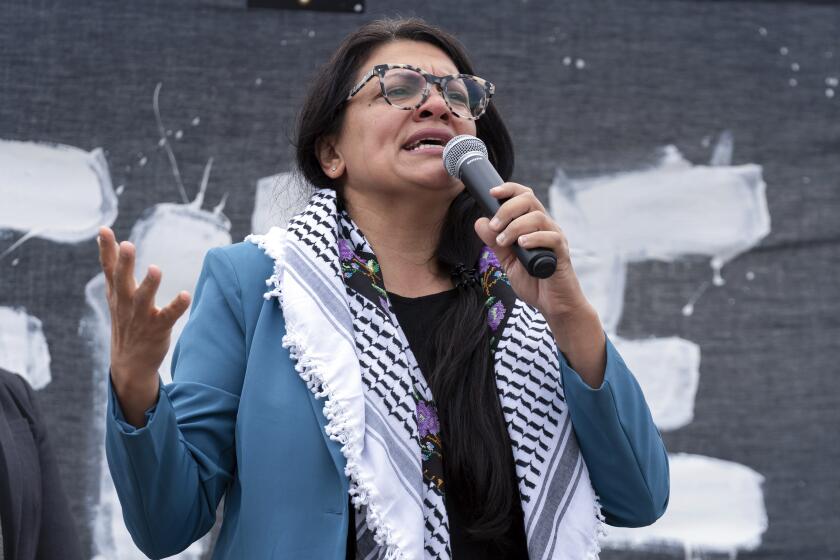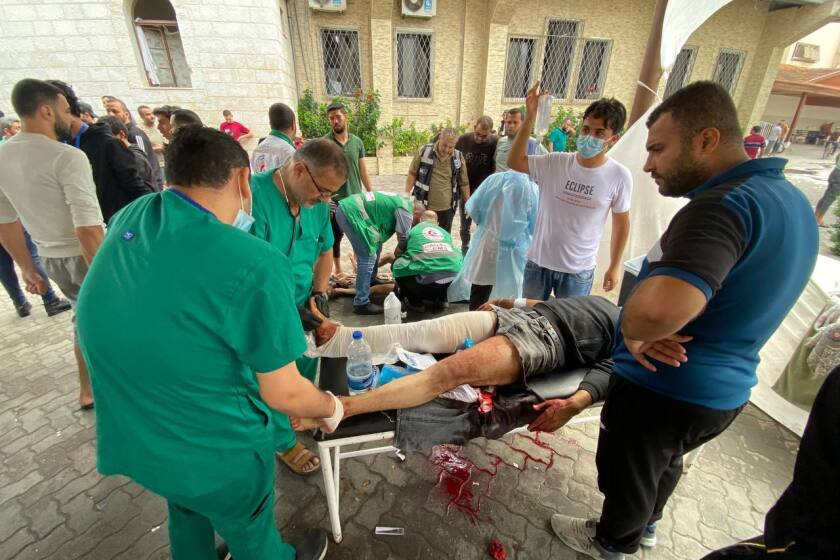As a Palestinian, I felt fortunate to grow up in California. That doesn’t mean it was easy

- Share via
As a child, I listened to my grandmother’s stories of her childhood in Lydd (modern-day Lod, Israel). She told me of smelling the orange groves, learning the Byzantine hymns of the Orthodox Church in Greek and going to the beach in Yaffa. One day, she told me the key to the home she fled during the Nakba (Arabic for “catastrophe”) in 1948 was still wrapped in a white cloth under her knitting kit.
My tata (Arabic for “grandmother”) always told me she was one of the lucky few who made it into Jordan and established a life there. Yet her good fortune also bred guilt that her neighbors and friends were not as lucky.
Although I was born and raised in Northern California, I spent years in Jordan when I was younger. I have never forgotten my Palestinian heritage of dispossession.
A House measure censured the only Palestinian American in Congress over her comments on the Gaza war. What signal does this send to our community?
Like my tata, I feel guilty that I live far from the sounds of bombs and the smell of decaying corpses under rubble. I feel guilty that I’m powerless to help. I feel guilty for enjoying running water, electricity and food: Growing up, my parents would tell us to finish our plates because a Palestinian child was starving in a refugee camp.
My parents raised me to respect different opinions and ensure those around me felt included. However, as a Palestinian Jordanian American, I have seldom felt my opinions were respected or that my experiences were included in the conversation.
On the morning of my first day of fourth grade — a sunny California day in 2007 that I will remember forever — my mother braided my long hair into two pigtails, and my tata helped me put on a beautiful gold necklace, inscribed with my name in Arabic, that my parents had bought for me.
I walked into class excited to catch up with friends and find my seat. But I was greeted with glares and whispers from my classmates and their parents. Later that day, a student told me we could not be friends because my necklace identified me as a terrorist. I never told my parents about this, but I took off the necklace, and it remains with my mother’s jewelry collection to this day.
Gaza hospitals are collapsing. As a mother there, I wonder why we bring children into this world if they will suffer.
When I tried to speak about my grandmother’s stories in a college history class, a classmate told me my tata was a liar and her stories were nonsense. They told me that rather than fleeing for her safety, she simply left. I’ve heard this Israeli narrative repeated many times in my 25 years.
These experiences taught me to keep quiet about my family’s history for years. I still find myself in situations where I feel I must remain silent for my safety.
This isn’t unusual in my community. Much of the racism, hatred and violence I have encountered has gone undocumented and disbelieved. I have felt that the life of a Palestinian or Arab American is worth less than the life of another. I have been told that the suffering of my family is not as significant as the suffering of others.
The reality is that I understand the pain of all those whose families have suffered because I, too, know that feeling. I know there is no monopoly on suffering.
I worry about explaining Palestine and what it means to be Palestinian to my children. Palestinians in the diaspora tell their children the stories of their ancestry because they won’t hear them in school. Palestinians tell their children these stories to comfort them and prepare them for what they will encounter at school and beyond. My identity as a Palestinian American is so charged that when asked where my family was from, I learned to mumble “the Middle East,” trying to protect myself from what someone might do to me if they found out that I was Palestinian or Jordanian.
My silence came from a place of fear that speaking up could cost me a job or college admission because those in positions of power could not see the humanity I have tried to explain for years. My silence also comes from an identity that has been shaped by others who do not account for the true nature of Palestinians. It has been a burden to carry this identity in silence.
But the diaspora has arrived at a moment when our fear of speaking does not compare to the fear of innocent Palestinian lives being lost. Staying silent is no longer an option.
We must consider the humanity of a people who have been dehumanized for decades. I hope others will begin to truly listen and understand our displacement as Palestinians.
Christina Bouri is a research associate focusing on the Middle East at the Council on Foreign Relations.
More to Read
A cure for the common opinion
Get thought-provoking perspectives with our weekly newsletter.
You may occasionally receive promotional content from the Los Angeles Times.












